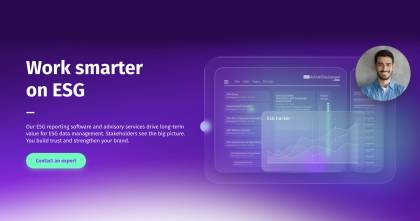As investors remain focused on ESG reporting, SASB standards are increasingly important. These standards help companies disclose sustainable information to investors in a manner that allows investors to compare like with like.
As a refresher, SASB stands for the Sustainability Accounting Standards Board, a nonprofit organization that was formed in 2011 with the goal of helping investors and businesses communicate more easily about sustainability. The sustainability landscape has become markedly more complex since 2011, but the SASB framework is effective at focusing the discussion for the benefit of businesses and investors alike.
What Are the SASB Standards?
The SASB standards are a set of rules for different companies. The standards were developed with participation from companies, investors and experts in the subject areas, and take evidence-based research into account. An independent board provides oversight during the creation of every standard.
There are 77 standards to reflect the needs of different industries. Rather than name every standard created, let's focus on the commonalities shared by these standards.
They cover 26 subtopics under the ESG umbrella and are organized into the following issue categories:
- Environment
- Social capital
- Human capital
- Business model and innovation
- Leadership and governance
Every industry-specific standard identifies the most relevant ESG issues when it comes to financial performance within that sector. This rigorous selection criteria allows companies to efficiently report on the most relevant information.
In addition to the standards, SASB provides two guides. One helps investors better understand financially material ESG issues, so they can make investment decisions that align with their values. One helps companies implement the standards, and comes in handy when it's SASB reporting time.
Find the correct SASB standards for your company.
What Is SASB Reporting?
Now let's move on to SASB reporting requirements.
Before they can report the right data, companies need to know what should to be reported and how to monitor it. Take greenhouse gases as an example. If companies are reporting on their emissions, they need to know how to measure emissions so they can report accurate data.
Thus, the first step in SASB reporting is to review the standard for your specific industry. Not everything within the standard may be relevant to your business, so take robust notes on everything that does apply to your business.
Next, think about the most appropriate data collection methods. Using greenhouse gas again as an example, reflect on what activities contribute to greenhouse gas, such as business operation and facilities or employee travel and commuting. Then, determine the best way to measure them and begin to collect data.
When it's time to report, aggregate the data and report in the requested framework. Reported data is then presented to investors who can factor it into account when making investment decisions.
While the data sets that companies will need to report differ widely based on industries, they generally cover common sustainable topics including:
- Water use
- Energy management
- Customer privacy and data security
- Labor practices
- Product design
- Product lifecycle management
- Business ethics
SASB FSA Credential
One term you'll come across when reviewing SASB materials is the FSA credential. In this context, FSA stands for Fundamentals of Sustainability Accounting. The FSA credential is a relatively new exam unrolled by the SASB, which tests professionals on concepts related to sustainability materiality. Professionals who pass the exam will have a strong understanding of the relationship between material sustainability and business finances.
Since the exam focuses on analysis and quantification of sustainability as it relates to the business values, there is a clear correlation between credentialed employees and future-thinking business leaders. Businesses can use the FSA credential to make hiring decisions or to upskill existing staff to better understand sustainability reporting requirements.
Why Is SASB Important?
SASB is important because of the increased demand for businesses to meet ESG standards. Given that businesses need to adhere to ESG governance areas, there will always be a need to show their work — essentially, to report on what they have done and the takeaways from an operational and financial perspective. Having a set of standards in places means that all business in the same industry can report in a similar way on their ESG performance, and that interested investors can factor sustainability into their decision of how to invest.
In sum, SASB matters because it:
- Focuses industries on the most relevant ESG sustainability strategies
- Provides a clear framework for reporting
- Reduces costs associated with ESG reporting
- Boosts a company's ESG rating
- Good performance on SASB topics correlated highly with financial success
After learning about SASB, companies may want to review their ESG commitments with an eye toward the relevant standard for their industry. An ESG materiality assessment can be useful in this regard.
Hand in hand with SASB standards is ESG reporting, since companies will need to report on their ESG commitments. The choice of ESG reporting software greatly influences the ease of the reporting process. By selecting reporting software that is intelligent, businesses can significantly reduce the amount of time it takes to report on ESG and redirect it toward activities that enhance business operation.

